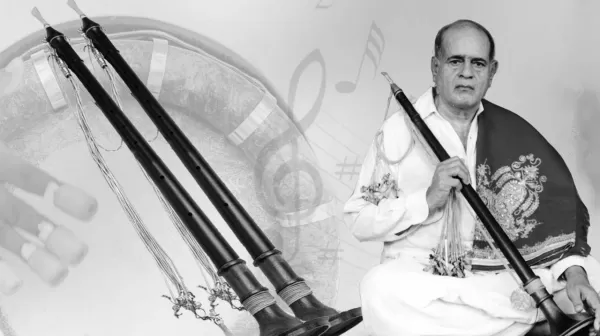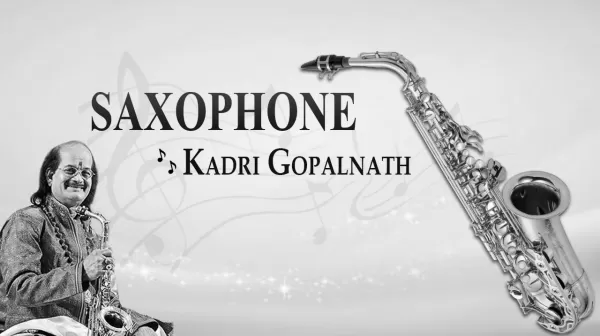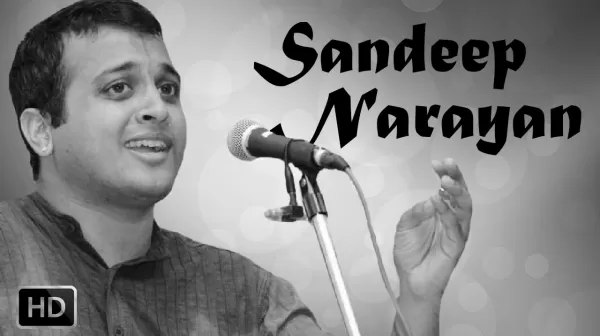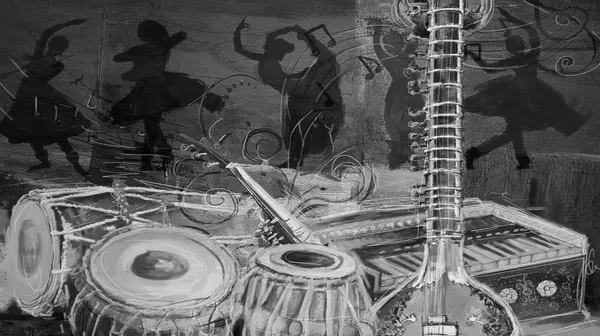Geethanjali - Indian Classical Music
Carnatic Vocal ❤️ Eka Dhantham ❤️ Om Sri Gananayaka ❤️ S.Sowmya
Carnatic music is a system of music commonly associated with the southern part of the Indian subcontinent, with its area roughly confined to four modern states of India: Andhra Pradesh, Karnataka, Kerala, and Tamil Nadu. It is one of two main sub genres of Indian classical music that evolved from ancient Hindu traditions; the other sub genre being Hindustani music, which emerged as a distinct form because of Persian and Islamic influences in North India. Carnatic Music is one of world's oldest and richest musical traditions.
Carnatic Vocal ❤️ Maha Ganapathim ❤️ Om Sri Gananayaka ❤️ S.Sowmya
Carnatic Music is a system of music commonly associated with the southern part of the Indian subcontinent, with its area roughly confined to four modern states of India: Andhra Pradesh, Karnataka, Kerala, and Tamil Nadu. It is one of two main sub genres of Indian classical music that evolved from ancient Hindu traditions; the other sub genre being Hindustani music, which emerged as a distinct form because of Persian and Islamic influences in North India.
Carnatic Vocal ❤️ Tatvamariya Tarama ❤️ Om Sri Gananayaka ❤️ S.Sowmya
Carnatic Music is one of world's oldest and richest musical traditions. It primarily comprises a monophonic song based on improvised variations. The melody infused ragas called alapana are introduced and developed gradually. It begins with Varnam a warm up of sort for the musicians followed by exchange of ragas and thalas intermixed with kritis and pallavi. S. Sowmya is a Carnatic music singer. She learnt music initially from her father Dr. Srinivasan, and later from Dr. S. Ramanathan and Smt.T. Muktha.
Carnatic Vocal ❤️ Saranam Siddhi Vinayaka ❤️ Om Sri Gananayaka ❤️ S.Sowmya
Carnatic music is a system of music commonly associated with the southern part of the Indian subcontinent, with its area roughly confined to four modern states of India: Andhra Pradesh, Karnataka, Kerala, and Tamil Nadu. It is one of two main sub genres of Indian classical music that evolved from ancient Hindu traditions; the other sub genre being Hindustani music, which emerged as a distinct form because of Persian and Islamic influences in North India. S. Sowmya is a Carnatic music singer. She learnt music initially from her father Dr. Srinivasan, and later from Dr. S.
Carnatic Vocal ❤️ Tharunam Idhu ❤️ Om Sri Gananayaka ❤️ S.Sowmya
Carnatic music is a system of music commonly associated with the southern part of the Indian subcontinent, with its area roughly confined to four modern states of India: Andhra Pradesh, Karnataka, Kerala, and Tamil Nadu. It is one of two main sub genres of Indian classical music that evolved from ancient Hindu traditions; the other sub genre being Hindustani music, which emerged as a distinct form because of Persian and Islamic influences in North India.
Carnatic Vocal ❤️ Vallabha Nayaka ❤️ Om Sri Gananayaka ❤️ S.Sowmya
Carnatic Music is one of world's oldest and richest musical traditions. It primarily comprises a monophonic song based on improvised variations. The melody infused ragas called alapana are introduced and developed gradually. It begins with Varnam a warm up of sort for the musicians followed by exchange of ragas and thalas intermixed with kritis and pallavi. The main emphasis in Carnatic music is on vocal music; most compositions are written to be sung, and even when played on instruments, they are meant to be performed in gāyaki (singing) style. S. Sowmya is a Carnatic music singer.
Carnatic Vocal ❤️ Vigna Vinayaka ❤️ Om Sri Gananayaka ❤️ S.Sowmya
Carnatic music is a system of music commonly associated with the southern part of the Indian subcontinent, with its area roughly confined to four modern states of India: Andhra Pradesh, Karnataka, Kerala, and Tamil Nadu. It is one of two main sub genres of Indian classical music that evolved from ancient Hindu traditions; the other sub genre being Hindustani music, which emerged as a distinct form because of Persian and Islamic influences in North India. S. Sowmya is a Carnatic music singer. She learnt music initially from her father Dr. Srinivasan, and later from Dr. S.
Carnatic Vocal ❤️ Needhan Mechi Kolla ❤️ Sri Krishna Gaanam ❤️ S. Sowmya
Carnatic Music is one of world's oldest and richest musical traditions. It primarily comprises a monophonic song based on improvised variations. The melody infused ragas called alapana are introduced and developed gradually. It begins with Varnam a warm up of sort for the musicians followed by exchange of ragas and thalas intermixed with kritis and pallavi. The main emphasis in Carnatic music is on vocal music; most compositions are written to be sung, and even when played on instruments, they are meant to be performed in gāyaki (singing) style. S. Sowmya is a Carnatic music singer.
Carnatic Vocal ❤️ Kuzhaloodhi Manamellam ❤️ Sri Krishna Gaanam ❤️ S.Sowmya
Carnatic Music is one of world's oldest and richest musical traditions. It primarily comprises a monophonic song based on improvised variations. The melody infused ragas called alapana are introduced and developed gradually. It begins with Varnam a warm up of sort for the musicians followed by exchange of ragas and thalas intermixed with kritis and pallavi. S. Sowmya is a Carnatic music singer. She learnt music initially from her father Dr. Srinivasan, and later from Dr. S. Ramanathan and Smt.T. Muktha.
Carnatic Vocal ❤️ Aadaathu Asangadhu Vaa Kanna ❤️ Sri Krishna Gaanam ❤️ S.Sowmya
Carnatic music is a system of music commonly associated with the southern part of the Indian subcontinent, with its area roughly confined to four modern states of India: Andhra Pradesh, Karnataka, Kerala, and Tamil Nadu. It is one of two main sub genres of Indian classical music that evolved from ancient Hindu traditions; the other sub genre being Hindustani music, which emerged as a distinct form because of Persian and Islamic influences in North India. S. Sowmya is a Carnatic music singer. She learnt music initially from her father Dr. Srinivasan, and later from Dr. S.










